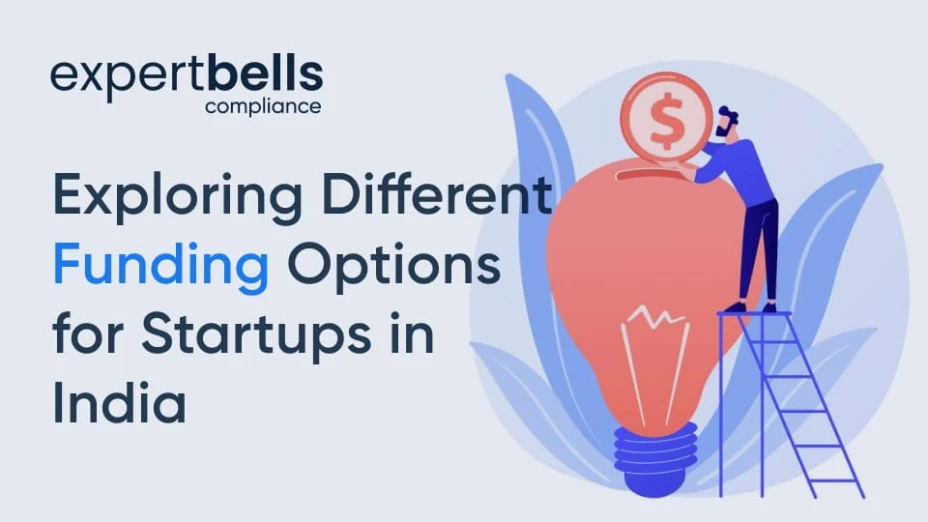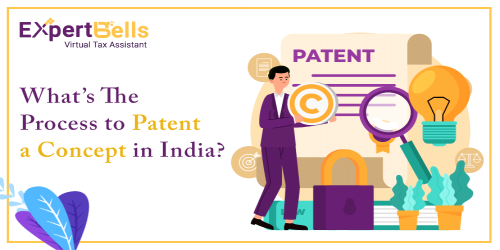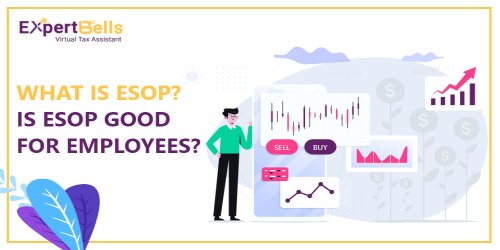Exploring Different Funding Options for Startups in India

In the vibrant landscape of India's startup ecosystem, funding is the lifeblood that fuels innovation and growth. Whether you're a budding entrepreneur or an established startup owner, understanding the various funding options available is crucial for sustaining and scaling your business. In this comprehensive guide, we will explore different funding avenues, their pros and cons, and provide valuable insights to help you make informed decisions.
Introduction
Launching a startup in India is an exciting journey filled with challenges and opportunities. One of the most critical aspects of this journey is securing funding. Adequate capital is essential for product development, marketing, scaling operations, and staying competitive in the market.
In this guide, we will delve into various funding options, their advantages, disadvantages, and the circumstances in which they are most suitable.
Bootstrapping: Your Own Savings
What is Bootstrapping?
Bootstrapping is the art of self-funding your startup using personal savings and revenue generated by the business. It allows you to maintain full control over your venture without external investors.
Advantages of Bootstrapping:
Independence: You retain full ownership and decision-making power.
No Debt: Avoid accumulating debt early in your startup journey.
Profit Retention: Enjoy all the profits generated by the business.
Disadvantages of Bootstrapping:
Limited Resources: Growth may be slower due to limited capital.
Risk: Personal finances are at stake if the business fails.
Limited Scale: Scaling may be challenging without external funding.
Angel Investors: Wings of Support
Who are Angel Investors?
Angel investors are affluent individuals who provide capital to startups in exchange for equity. They often bring not only financial support but also valuable expertise and connections.
Advantages of Angel Investors:
Expertise: Benefit from the mentorship and guidance of experienced investors.
Network: Gain access to a broader network of industry contacts.
Early Validation: An angel investor's involvement can enhance your startup's credibility.
Disadvantages of Angel Investors:
Equity Dilution: You will need to give up a portion of ownership.
High Expectations: Angel investors expect a return on their investment.
Less Control: You may have to share decision-making authority.
Venture Capital: Scaling New Heights
What is Venture Capital?
Venture capital involves funds from venture capitalists, firms, or corporations in exchange for equity. This type of funding is often sought by startups with high growth potential.
Advantages of Venture Capital:
Substantial Funding: Access to significant capital for rapid expansion.
Expertise: Venture capitalists can provide strategic guidance.
Industry Connections: Access to valuable industry networks.
Disadvantages of Venture Capital:
Equity Stake: Significant ownership dilution is common.
High Expectations: VC firms expect substantial returns.
Pressure to Scale: Focus on growth can sometimes overshadow profitability.
Crowdfunding: The Power of the Crowd
What is Crowdfunding?
Crowdfunding involves raising small amounts of money from a large number of people, typically through online platforms. It's an excellent option for startups with compelling stories and products.
Advantages of Crowdfunding:
Access to Capital: Engage a global community of potential investors.
Market Validation: Successful campaigns can validate your idea.
Early Adopters: Attract early customers and advocates.
Disadvantages of Crowdfunding:
High Competition: Crowdfunding platforms are crowded, making it challenging to stand out.
Time-Consuming: Running a crowdfunding campaign demands significant time and effort.
All-or-Nothing: Some platforms require you to reach your funding goal to access funds.
Government Grants and Schemes
What are Government Grants?
Governments, both at the central and state levels, offer grants and schemes to support startups. These can range from research grants to subsidies and tax incentives.
Advantages of Government Grants:
Financial Support: Grants can provide a much-needed financial boost.
Reduced Costs: Tax incentives and subsidies can lower operational expenses.
Legitimacy: Government support adds credibility to your venture.
Disadvantages of Government Grants:
Complex Application: The application process can be bureaucratic and time-consuming.
Eligibility Criteria: Meeting specific criteria is essential to qualify.
Stringent Monitoring: Compliance with government regulations is required.
Bank Loans: Traditional Financing
What are Bank Loans?
Traditional bank loans are a conventional source of financing for startups. They involve borrowing a fixed sum from a bank and repaying it with interest over time.
Advantages of Bank Loans:
Structured Repayment: Loan terms are typically predictable.
No Equity Dilution: You retain full ownership.
Established Process: Accessing bank loans is straightforward.
Disadvantages of Bank Loans:
Interest Costs: Interest payments add to your expenses.
Collateral Required: Many bank loans require collateral.
Risk of Default: Defaulting can have serious consequences.
Private Equity: Strategic Investments
What is Private Equity?
Private equity involves investment from private equity firms or individual investors in exchange for equity. It's often sought by established startups looking to scale further.
Advantages of Private Equity:
Substantial Capital: Access to significant funding for expansion.
Strategic Guidance: Private equity investors often provide valuable industry insights.
Exit Strategies: Investors are focused on exit opportunities.
Disadvantages of Private Equity:
Equity Dilution: Significant ownership is usually given up.
Loss of Control: Investors may demand a say in decision-making.
Exit Pressure: Investors expect a profitable exit within a specified timeframe.
Conclusion
Securing funding for your startup in India is a multifaceted journey, and the right choice depends on your business's stage, goals, and preferences. Each funding option has its own set of advantages and disadvantages, so it's crucial to conduct thorough research and consider seeking professional advice.
Remember, success in securing funding is often about telling a compelling story, showcasing your vision, and demonstrating the potential for growth. Keep refining your pitch and exploring diverse funding avenues until you find the right fit for your startup's unique journey.
Related Articles

Conversion of Private Limited Company into Public Limited Company
A private company is a business entity held under private ownership. The company may issue stock and have shareholders, but company's shares do not trade on public exchanges like BSE or NFT and are not issued through an initial public offering (IPO).
Leave A Reply
Your email address will not be published. Required fields are marked *
Most Popular Blogs


What is a Mentor? Definition, Purpose & More

Difference Between Mentor and Mentee

How To Find A Business Mentor: A Complete Guide





5 Comments
Lorem Ipsum is simply dummy text of the printing and typesetting industry. Lorem Ipsum has been the industry's standard dummy text ever since the 1500s, when an unknown printer took a galley of type and scrambled it to make a type specimen book. It has survived not only five centuries, but also the leap into electronic typesetting, remaining essentially unchanged. It was popularised in the 1960s with the release of Letraset sheets containing Lorem Ipsum passages, and more recently with desktop publishing software like Aldus PageMaker including versions of Lorem Ipsum.
Lorem Ipsum is simply dummy text of the printing and typesetting industry. Lorem Ipsum has been the industry's standard dummy text ever since the 1500s, when an unknown printer took a galley of type and scrambled it to make a type specimen book. It has survived not only five centuries, but also the leap into electronic typesetting, remaining essentially unchanged. It was popularised in the 1960s with the release of Letraset sheets containing Lorem Ipsum passages, and more recently with desktop publishing software like Aldus PageMaker including versions of Lorem Ipsum.
Lorem Ipsum is simply dummy text of the printing and typesetting industry. Lorem Ipsum has been the industry's standard dummy text ever since the 1500s, when an unknown printer took a galley of type and scrambled it to make a type specimen book. It has survived not only five centuries, but also the leap into electronic typesetting, remaining essentially unchanged. It was popularised in the 1960s with the release of Letraset sheets containing Lorem Ipsum passages, and more recently with desktop publishing software like Aldus PageMaker including versions of Lorem Ipsum.